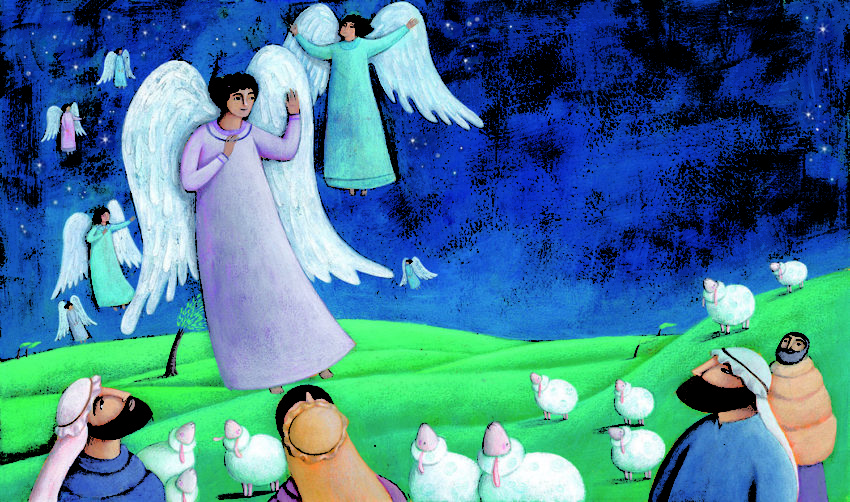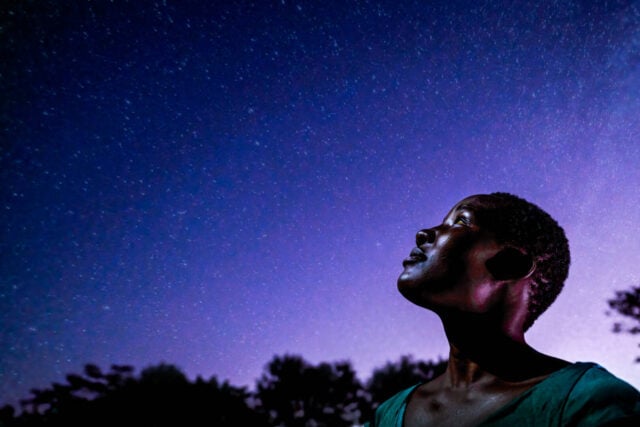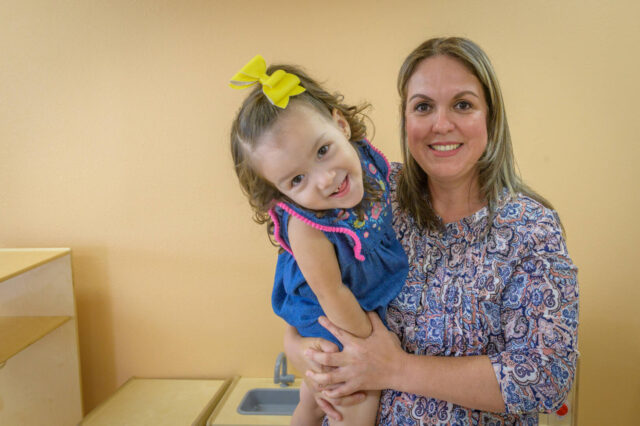In 2003, I visited a remote area of Kenya where World Vision had worked for nearly 20 years. Celebrating all God had done in that time, a group of local pastors invited me for a special barbecue under the stars. Meat roasted on a spit, its juices dripped into the roaring flames, set off sparks that shot up into the night sky like swarms of brilliant fireflies.
I put my head back to watch their ascent and caught my breath, dazzled by the endless canopy of stars overhead. Millions of stars twinkled with a brilliance I’d never seen in the murky skies over my Southern California home.
Whenever I read the story of the first Christmas in Luke 2, I picture that night. Like our Maasai hosts, the shepherds who kept watch over their sheep at night were nomadic people of the land. Their days were measured by the rhythm of God’s creation. Their lives were hard but predictable, each day much like the one before. Then one night, something extraordinary happened.
“An angel of the Lord appeared to them, and the glory of the Lord shone around them, and they were terrified. But the angel said to them, ‘Do not be afraid. I bring you good news that will cause great joy for all the people. Today in the town of David a Savior has been born to you; he is the Messiah. This will be a sign to you: You will find a baby wrapped in cloths and lying in a manger’” (Luke 2:9-12, NIV).
The world changed that silent, starry night. For thousands of years, Israel had been awaiting the arrival of the Messiah. Now he was here and, incredibly, of all the people on the planet, God chose to announce this astounding news to a group of humble, illiterate shepherds.
These men were among the poorest of the poor. But their humble station did not disqualify them from participating in a miracle. In fact, the Word says they were the first to seek out the Christ child — and the first to share the good news with others. Luke 2:18 tells us that “all who heard it were amazed at what the shepherds said to them.”
Wherever World Vision works, we see God using humble servants like these to declare his glory in the darkness and participate in the works of his kingdom. And as was true of the shepherds’ extraordinary tale, their stories never fail to amaze and astound.
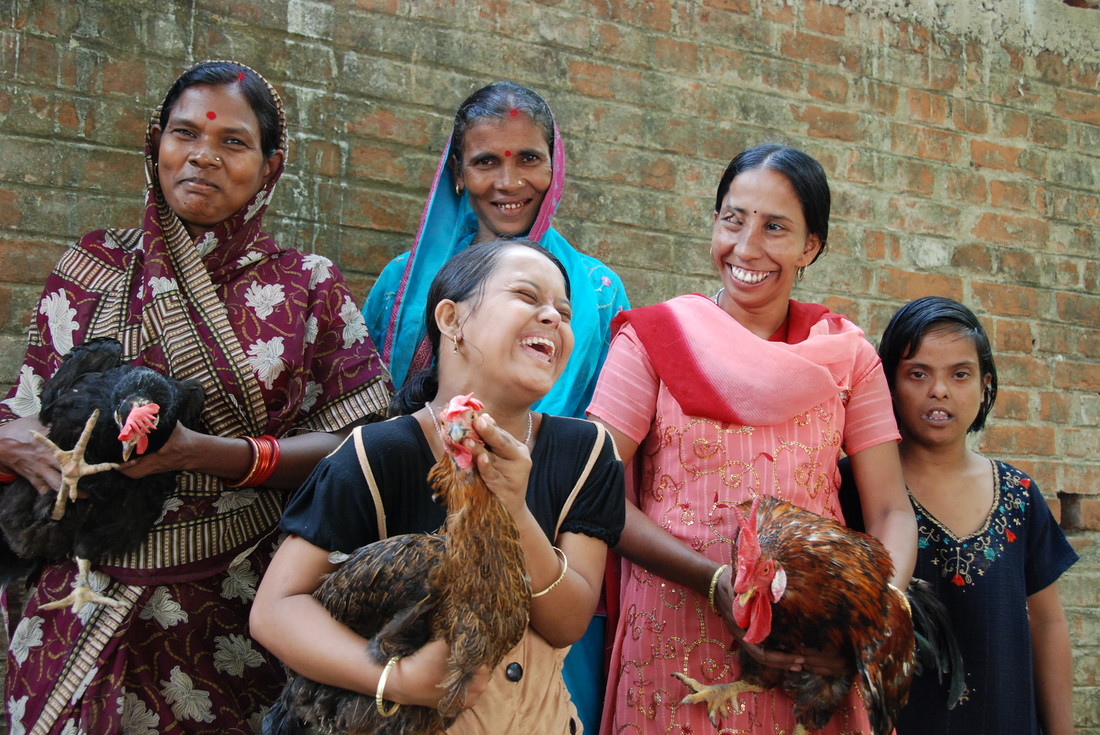
The God who sees us
Unlike the night our Savior was born, there was no celebration when Minakhsy Roul came into the world. She was born with only partial vision, and in rural India, it is broadly assumed that physical and mental impairments are the result of past sins or generational curses. The result of this fatalistic view is that a disabled child is often considered a burden and of little use to either the family or the community.
“I grew up feeling inferior to others. The children called me ‘the girl with one eye.’ And while my parents loved me, I was sure it was out of pity. After all, I was handicapped,” Minakhsy recalls.
“Minakhsy used to cry and ask why her siblings were normal and she was not,” says Dhirendra Roul, Minakhsy’s father. “We were very concerned about her future. Who would marry her? We were certain that she wouldn’t be able to take care of herself.”
Angry at the world, her parents, and God, Minakhsy dropped out of school before completing 10th grade. Feeling lonely and without hope, she became increasingly depressed. It was during this time that God sent a messenger of hope into her life.
Pratima Tandi, a prayerful and spirited World Vision community development coordinator, saw something special in the young woman and went out of her way to encourage her.
We knew the purpose God had given us and kept his vision in mind.—Pratima Tandi
“When I first interacted with Minakhsy, she had very low self-esteem,” Pratima says. “It took many visits for her to realize that she was special and that God loved her just the way she was. I told her that everything happens for a reason and that while others did not see her potential, God saw her for who she truly was and had a purpose for her life.”
Eventually, Minakhsy introduced Pratima to other people with different kinds of disabilities, like 45-year-old Anjita Das, who has no fingers or toes, and Atushi Biswal, a young woman with autism. Pratima learned that neighbors told Atushi’s mother her daughter was insane and strongly suggested she kill the little girl to be free from the burden. But Anjana Biswal loved her daughter and refused. Life has been a struggle ever since.
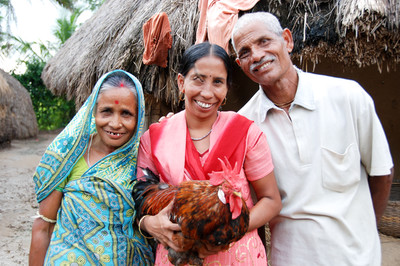
Pratima and Minakhsy began praying for God to show them ways to assist disabled women like Anjita and Atushi and help them develop their God-given talents. As a result, the Maa Batamangala self-help group for women with mental and physical challenges was established.
“People thought that we were crazy and questioned the efficiency and sustainability of the group. But we knew the purpose God had given us and kept his vision in mind,” Pratima says.
Because the women didn’t have any income, World Vision invested $400 in a poultry farm and trained the nine-member support group to raise chickens and manage their finances. Pratima constantly encouraged the group, instilling a “never-accept-defeat” attitude in the team.
They succeeded beyond all expectations. As a result, a local agricultural officer sanctioned a $7,400 loan, and now group members are hoping to make their poultry farm a renowned enterprise with hundreds of chickens.
“So what if I don’t have fingers and toes on my hands and feet? I can still do things,” declares Anjita proudly. “From 40 chicks, we will increase to 200, then 300. No one can stop us now.”
She is self-sufficient, and her future is bright. This is solely possible because of God’s love. This is the bigger plan of God!—Dhirendra Roul, Minakhsy’s father
Atushi’s mother, Anjana Biswal, has seen a similar transformation in her daughter’s life. “Once my autistic child was confined to her home. But now she mixes with the group, laughing and dancing, and the very neighbors who advised me to kill her now say that she is Lakshmi — a source of income into our home. It is only God’s grace that brought her to this group and his provision gives us hope.”
The Bible tells the story of a man who was born blind. The disciples ask Jesus who sinned, the man or his parents? Jesus answers, “Neither. … This happened so that the works of God might be displayed in him.”
Minakhsy Roul was born partially blind, but today she works tirelessly on behalf of neighbors with special needs, petitioning the government for everything from wheelchairs to disability pensions and helping others to see themselves as God sees them — as people of value and purpose.
Looking at all she has achieved, her father says, “When I die, Minakhsy will not face the problems I thought she would. She is self-sufficient, and her future is bright. This is solely possible because of God’s love. This is the bigger plan of God!”
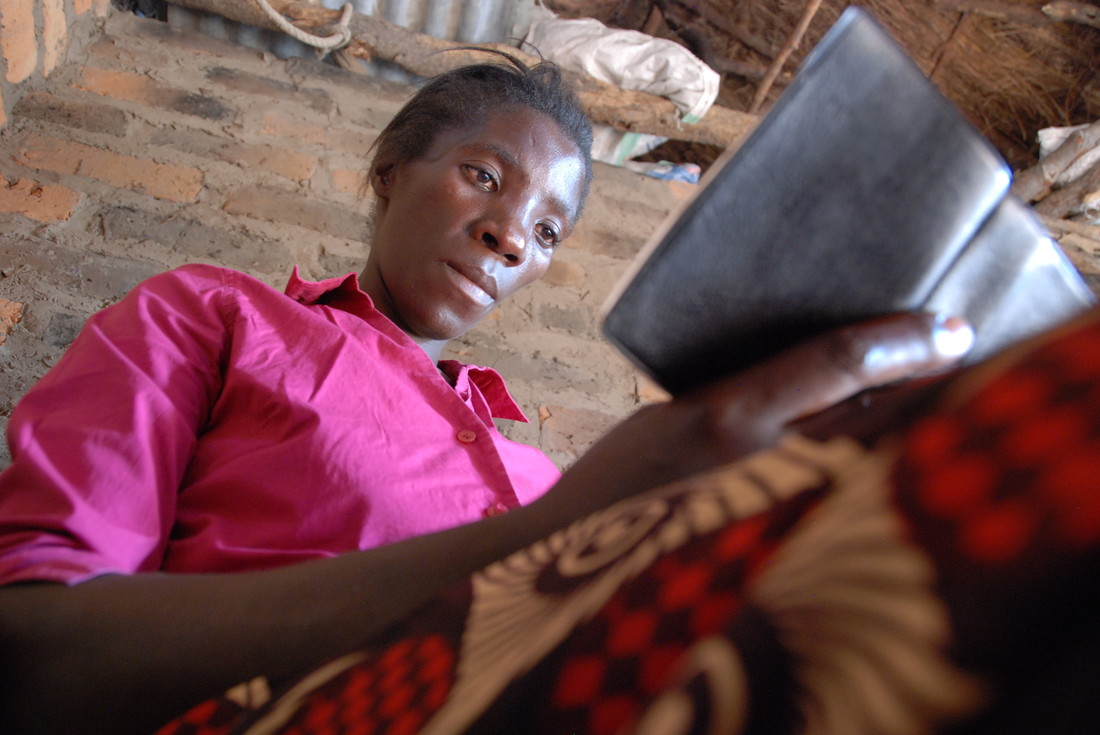
The God who gives purpose
As a trained World Vision AIDS caregiver in the Keembe area of Zambia, Susan Mweetwa has brought hope and comfort to hundreds of people suffering from HIV and AIDS. Her unique ability to understand their pain stems from the fact that Susan is HIV-positive and knows what it means to be without hope.
When she was 17, Susan was raped by a man she barely knew. When her father discovered she was pregnant, he insisted that she quit school and marry the man. Two years later, her husband died, and Susan took her young son to live with her parents in central Zambia. There she met another man with whom she had a daughter, but he also died.
Susan was raised to trust God, but her circumstances made him seem distant and impersonal. For the next few years, she struggled to support her two children. Then she became ill and had to be hospitalized. By the time she was diagnosed with HIV, she weighed only 77 pounds.
Susan began anti-retroviral treatments with little hope that they would work. Adding to her problems, one of her sisters suddenly died. At the funeral, people pulled at her sagging skin and told her mother to cry for two daughters, because Susan would also soon die.
“I have never faced that kind of cruelty,” Susan says. “It was more painful than the disease itself.”
Feeling rejected and desolate, Susan retreated from the world and began to seek the God she had once so loved. As she cried out to him, something amazing happened.
I have seen God’s hand working through me. His divine power can use us in any way possible, regardless of who we are. That is how God works.—Susan Mweetwa
“The more I prayed, the closer God seemed. My relationship with him grew more intimate, and I began to hear his voice again. He told me that I should do something to break the stigma that had hurt me so badly.”
Susan realized God loved her and had a purpose for her life. “He had allowed me to go through the worst forms of suffering in order to equip me to save the lives of his people in the community,” she says. Instead of hiding her condition, she began to talk about her HIV status with others.
Amazingly, Susan’s health gradually improved. When she was strong enough, she became a trained World Vision AIDS caregiver, taking classes in pain management, testing and counseling, and stigma reduction. Since finishing her training, Susan says she has worked like “wildfire” to share God’s love and spread a hopeful and positive message about HIV and AIDS.
“I have seen God’s hand working through me. His divine power can use us in any way possible, regardless of who we are. That is how God works,” she declares confidently.
That is how God works. People who the world sees as expendable become the cornerstones of transformation as God uses the weak things of this world to confound the strong, and the foolish things to confound the wise (1 Corinthians 1:27).
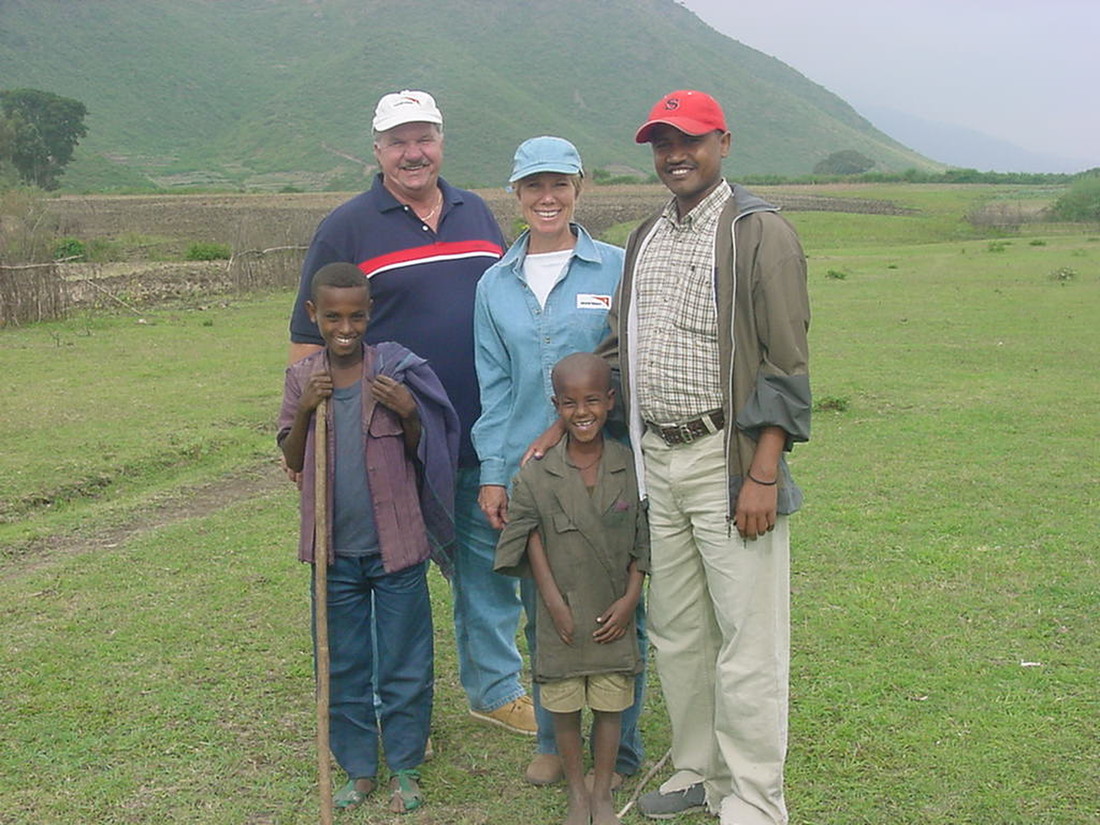
The God of new life
In the 1980s, Ethiopia suffered from severe drought and famine. According to the United Nations, nearly 1 million people starved to death while the world scrambled to help. But World Vision was already there, having come to Ethiopia in 1971 to help care for the insurgence of refugees fleeing civil war in Sudan.
During the worst of the famine, World Vision set up a massive camp to provide medical help and lifesaving food and water in Antsokia Valley, one of the hardest-hit areas.
“We called it the Valley of Death,” one farmer told me when my husband and I visited Antsokia 25 years later to see the impact of World Vision’s work. “As far as the eye could see, there was nothing but dust, and people looked like sticks walking toward the refugee camp. We were all so sick and weak that when someone died, we would just walk on. No one had the strength to bury them.”
The memory filled the man’s eyes with pain. But then he smiled and waved at his lush garden of citrus trees, avocados, and vegetables. He pointed out the fields of wheat and corn that flourished all around us. “But today we call it the Valley of Life because God heard our prayers and gave us water.”
A young, talented World Vision staff member named Tesfaye Ayenew drove us out to see the aqueduct World Vision helped community members build to bring water down from the surrounding mountains. The water was always there, but it took money and professional know-how to figure out how to design and construct the labyrinth of irrigation ditches that turned Antsokia into a virtual Garden of Eden.
As we drove, I asked Tesfaye why he chose to work in such a remote area, when he was clearly qualified to work in the city. He told us that he was born here and had been a sponsored child. But before World Vision sponsorship had given him an education and a future, he had been one of the skeletal children that had barely survived the famine.
I wasn’t really sure what he meant by God having a plan, but his words gave me hope. And I remember thinking that if I lived, I wanted to do what he did.—Tesfaye Ayenew
“I was so weak that I had to be fed every few hours,” Tesfaye says. “Sometimes I could keep the gruel down, but other times it would come back up, and I would make a mess on the floor. Every day, the World Vision project director would come into the medical tent to visit us. I remember watching him stoop down to clean up the floor. Then he would sit on my bed and take my hand.
“‘Don’t you give up,’ he would say. ‘God loves you and has a plan for your life. You keep fighting.’ I wasn’t really sure what he meant by God having a plan, but his words gave me hope. And I remember thinking that if I lived, I wanted to do what he did. I am here because I want to share the hope God has given me with others.”
Tesfaye is a messenger of hope, his very existence testifying to God’s ability to bring new life out of dust and death.
Luke 2:20 says that after the shepherds’ extraordinary trip to Bethlehem, they went back, glorifying and praising God for all they had heard and seen. They went back to their rocky fields, obstinate sheep, and daily hardship. The reality of their world hadn’t changed. But, like Minakhsy, Susan, and Tesfaye, they had been changed by new hope and purpose.
This Christmas, we thank God for all of his messengers of hope, and we feel anew the joy of “God with us” — of that starry night long ago when an angel appeared and all of heaven rejoiced.
Annila Harris of World Vision’s staff in India and Collins Kaumba of World Vision’s staff in Zambia contributed to this story.
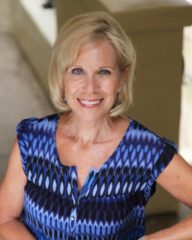
Marilee Pierce Dunker travels the world as an ambassador for World Vision, the organization her father, Bob Pierce, founded in 1950. Like he did, she shares stories, pictures, and personal reflections, bearing witness to the extraordinary ways God is using his people to share the gospel and care for the poor.
Visit World Vision’s Speakers Bureau site to request Marilee or another World Vision speaker to present at your upcoming event.
